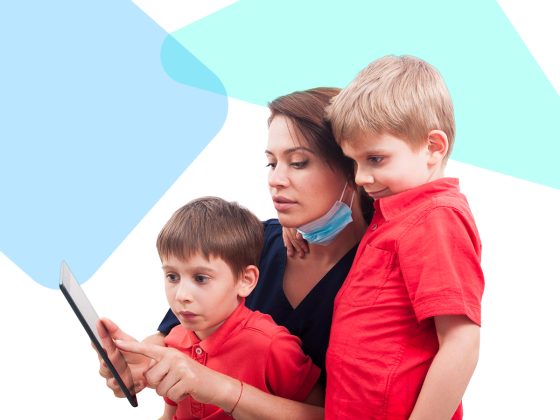
Explaining Sickness
An article to help families stay connected when a loved one is sick with COVID-19.
When a parent, caregiver, or other loved one becomes ill with COVID-19, the whole family struggles. But there are ways to comfort and reassure children, to offer clear, honest explanations, and to stay connected to the loved one who is sick.
Depending on children’s ages and whether or not you share a home with the ill person, and depending on how serious the person’s illness is, here are some things you might say:
- (Family member) has a sickness caused by a virus (a type of germ). Right now their body has germs that can make others sick, so they have to stay in a room alone for a while. They will rest and drink lots of water until they feel better, and then they can come out again and we can be in the same rooms.
- We’ll have to do some things differently for awhile. For right now, things are different, but the love in our family will not change.
- It’s okay to feel confused, frustrated, worried, or scared. I have those feelings, too. But you are safe, and we’re all in this together.
- Every day, let’s write or draw things we want to do with (family member) once they get better on small pieces of paper. We’ll fold them up and drop them in this hope jar (or bowl). When they get better and we can all be in the same room, we’ll read them together and do some of those things.
- Even though we can’t be with (family member), we can find new ways to be together for now, like video chatting.
- By staying apart and keeping healthy and clean, you are helping and doing your part to help everyone else stay well too. We’ll keep washing our hands a lot to get rid of any germs.
If the sick family member is isolated within the same home as the child, children probably wonder what’s going on in that room! If the sick family member is well enough:
- Children and parents can make videos for each other, or talk on the phone.
- Children can sit outside the door and sing songs (quietly if necessary).
- Children can draw pictures or write notes and slide them under the door. If the sick parent is able, they can post the pictures in the room in which they are quarantined and take photos of the “art gallery” to show the child (explain that the sick parent can’t slide anything back because of the germs).
The Inside Game
When the whole family is in full indoor quarantine and you have very young children, you might tell them that you’re playing a new game, “the inside game.” The family member who is staying in a separate room is playing the same game. For now, you’ll all stay inside, and you’ll find ways to make the game fun. If possible, the healthy adult can do special indoor things like build pillow forts, spread a blanket on the floor and have a “picnic dinner,” draw or color together with children, or suggest a mini-dance party in the kitchen. You might even make a list together of fun things to do indoors, and try one when the moment is right.
If a Loved One Is in the Hospital
It can be tough on everyone to manage the uncertainty and worry of having a family member in the hospital, especially since they can’t have visitors. How much information you share and how you explain it will naturally depend on your child’s age and the condition of your family member, but here are some things to consider:
- Explain that you can’t visit because the doctors and nurses need to concentrate on doing their jobs taking care of the people who are very sick, there could also be lots of germs in the hospital. Explain that you don’t want to bring any germs you might have into the hospital either.
- Explain that most people in the hospital with COVID-19 get better (depending on what you know about the patient’s condition; do not overly reassure children if the situation is very bad).
- It’s okay to let children know that you are also worried (“I understand. I’m concerned about Grandpa too, but we’ll get through this together”).
- Tell children that the doctors and nurses are taking good care of (family member).
- Assure children that you’re going to get information about how (family member) is doing every day.
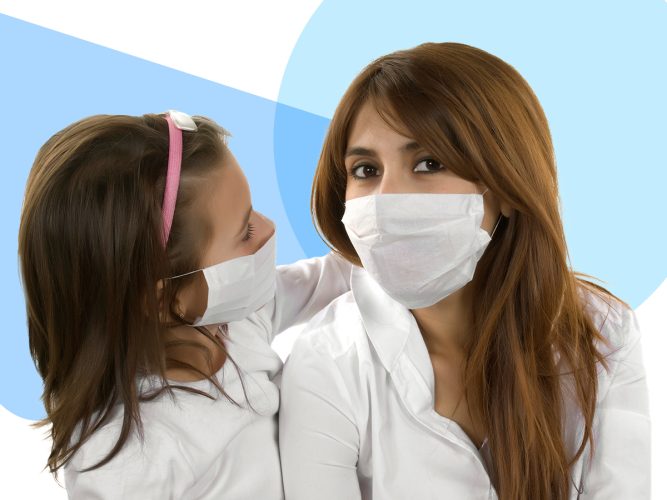
Good Questions (and Answers) About Covid-19 Vaccines
Common questions children ask about vaccines, and possible answers.
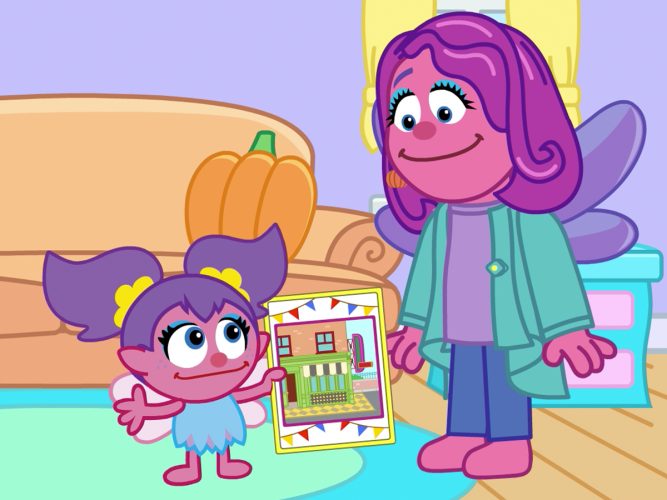
Hooper’s Store Reopens
As communities open up, together we can adjust to a new way of doing things—while keeping everyone safe.
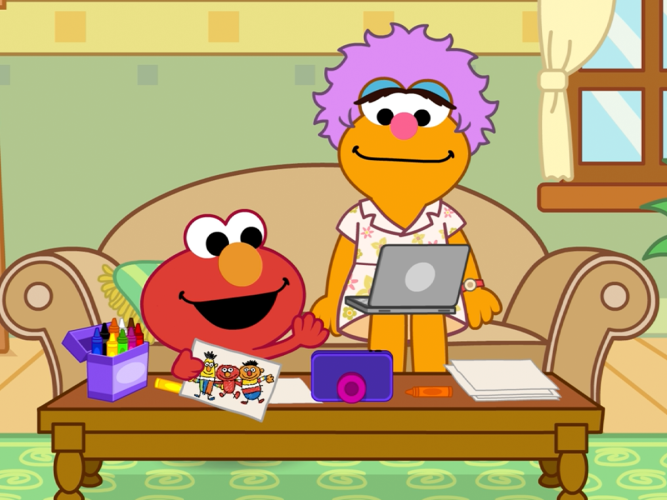
When Children Miss Their Friends
There are ways to stay connected with people we love...safely.
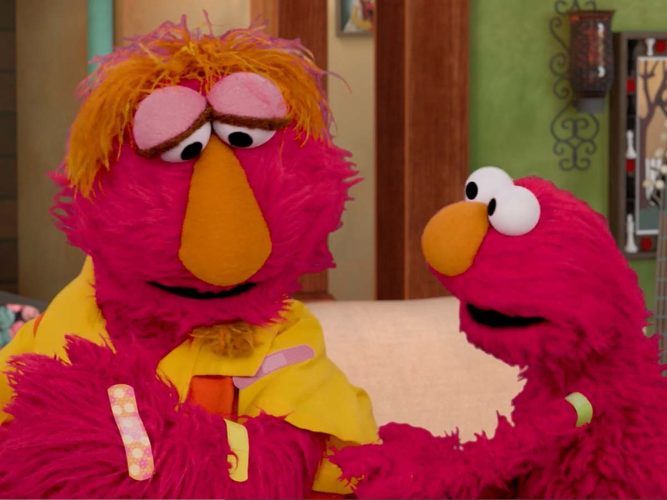
Elmo Gets the Covid-19 Vaccine
Elmo and Louie share their experience with the COVID-19 vaccine.

Elmo’s Bravery Bandage
A coloring page to help celebrate a child’s bravery when getting a shot.
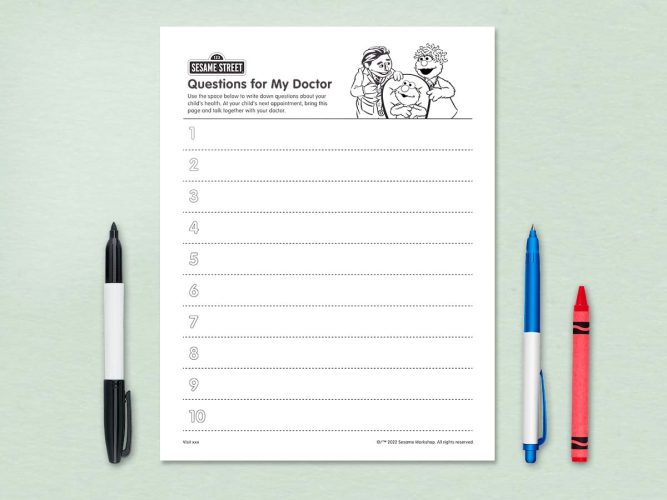
Questions for My Doctor
A place for parents and children to list questions for their doctor.
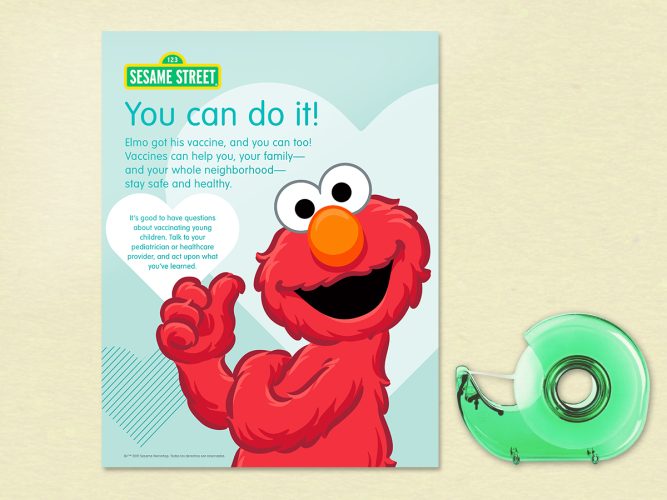
You Can Do It! Poster
A poster for providers to display to encourage families to get their young children vaccinated.
